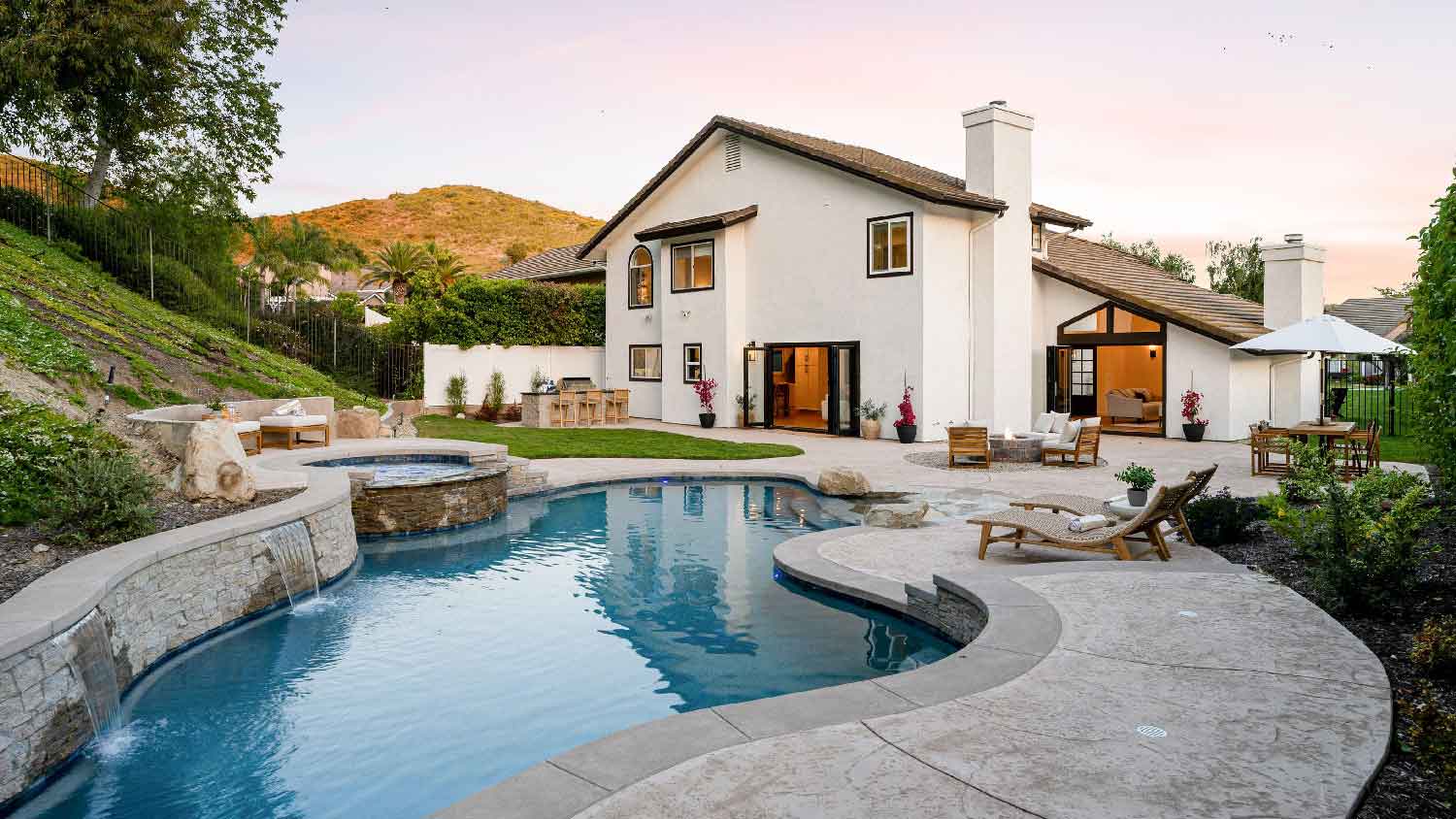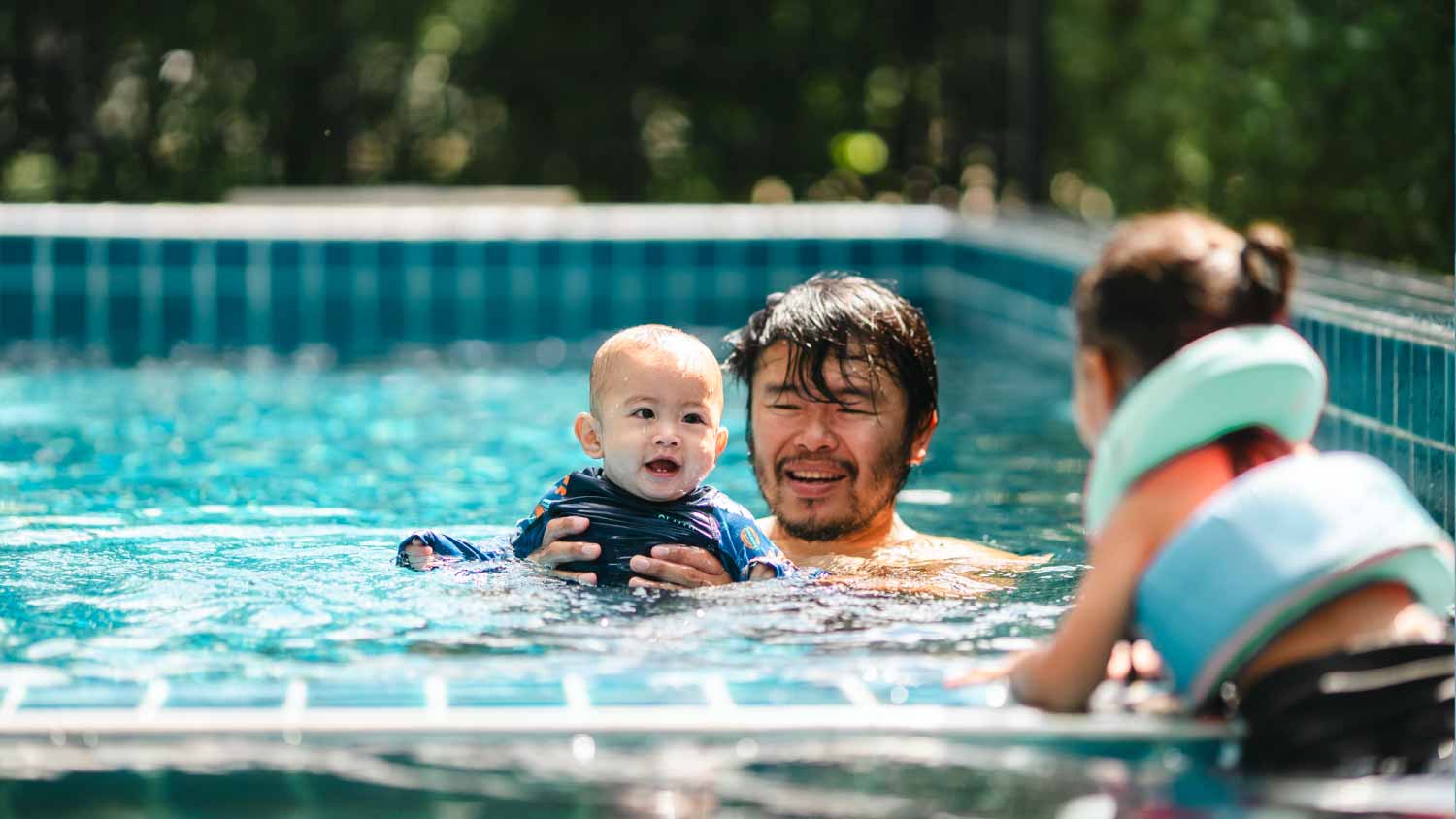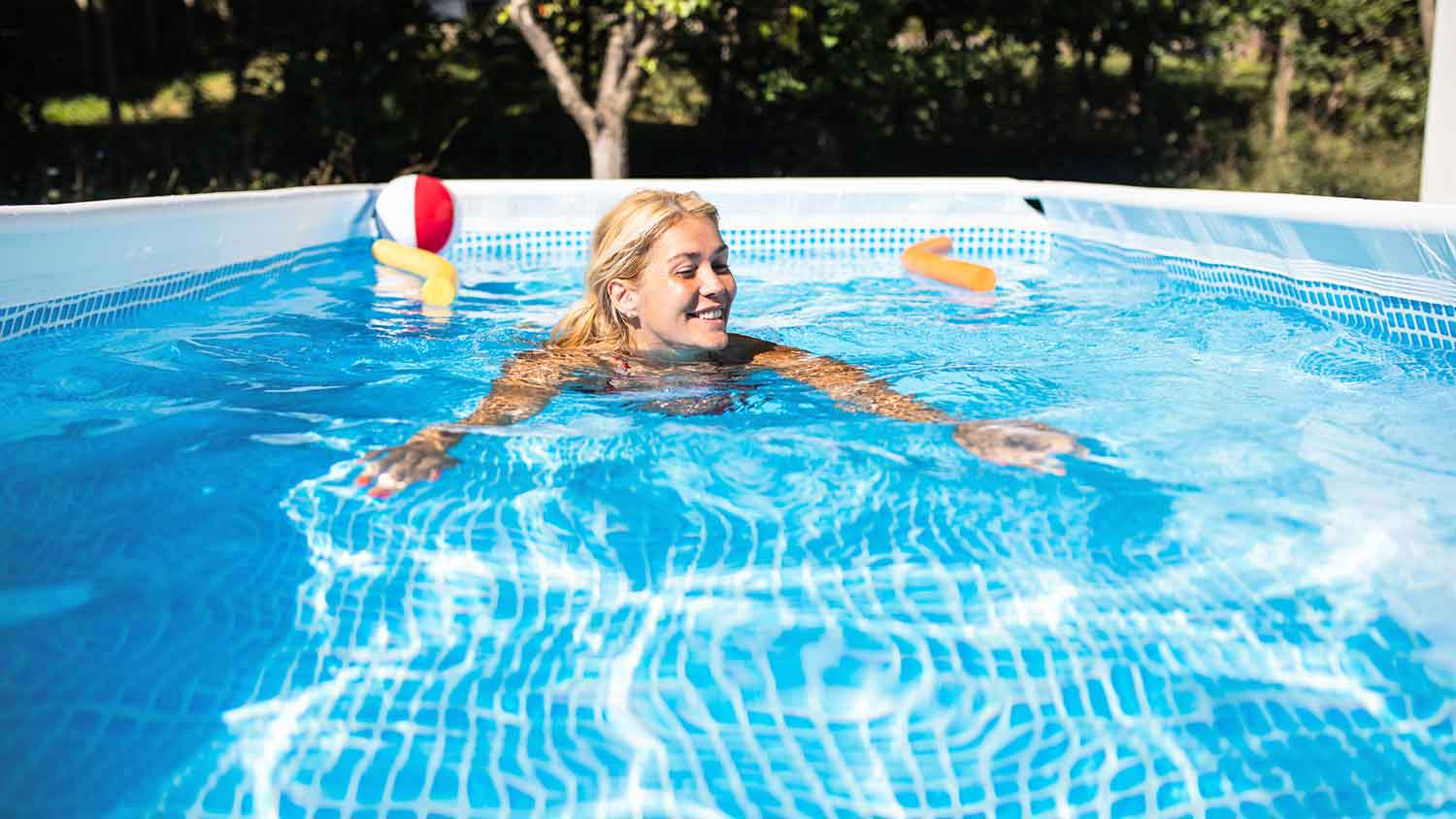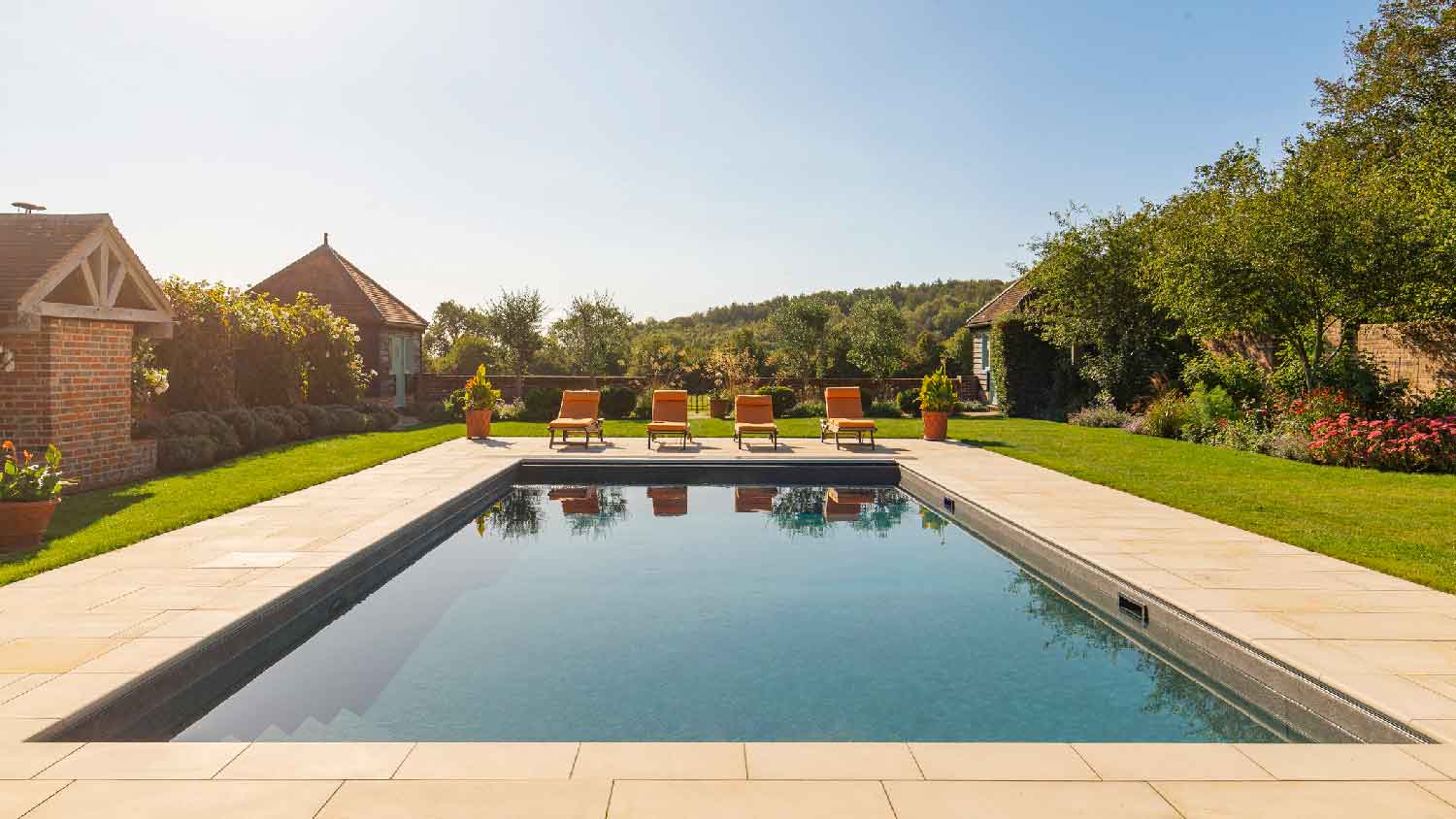Why Is My Pool Pump So Loud? 6 Common Problems and Solutions
Time to pump the brakes on that noisy pool pump
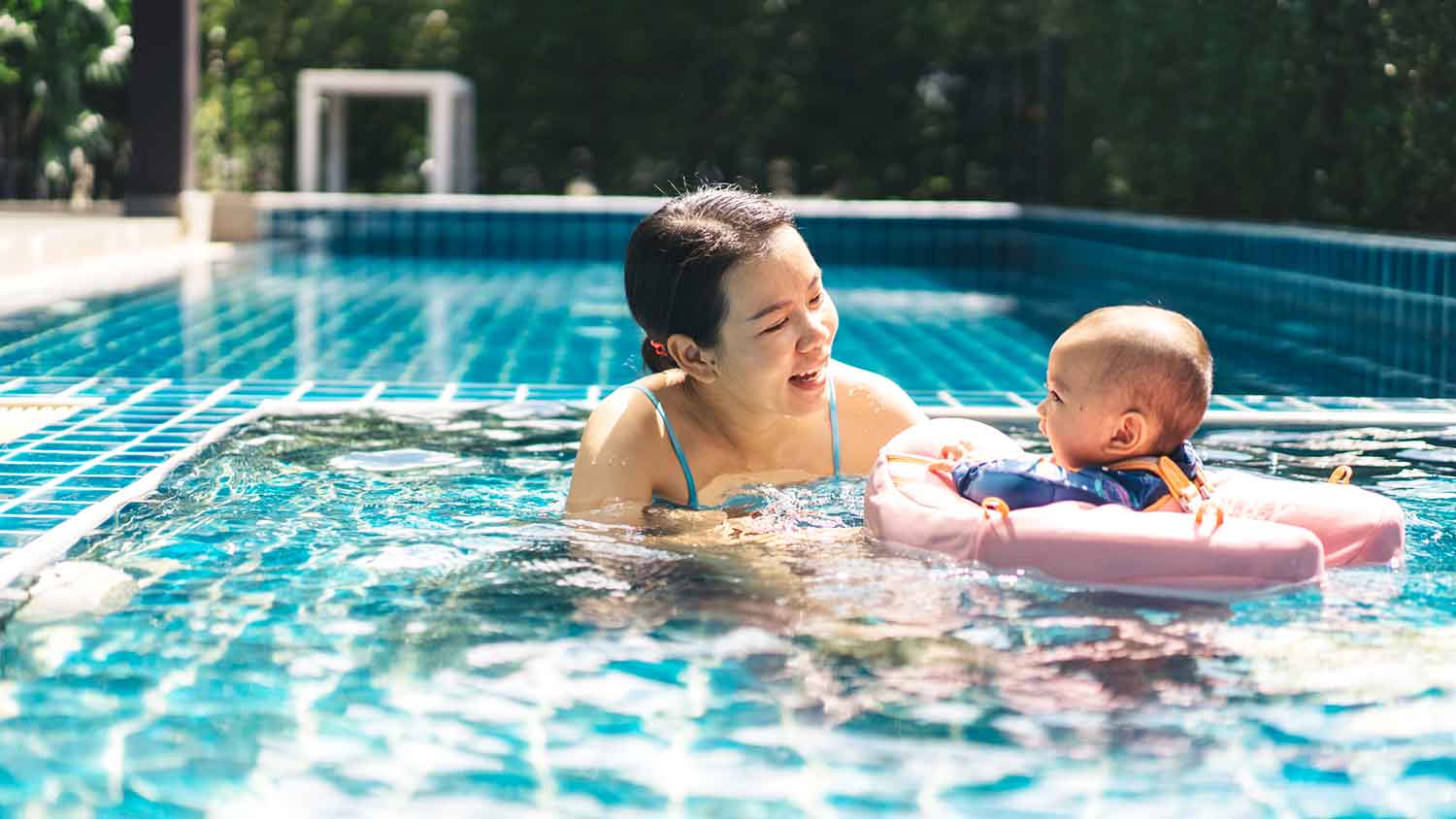

Replacing a pool pump costs around $200 in labor and $300 to $2,500 in materials.
Low water levels, clogs, and worn parts can cause a pool pump to be noisy.
Prevent loud pumps by staying on top of maintenance.
Work with a pro to replace or repair pump parts.
Your idea of relaxing by the pool might not be so great if you have a noisy pool pump interrupting your tan session. But when there’s an issue with a pool pump, loud sounds could help clue you into what you need to do to experience some peace and quiet come summer. If you’re wondering, “Why is my pool pump so loud?” We've rounded up several common reasons—and what you can do about it.
1. Low Water Levels
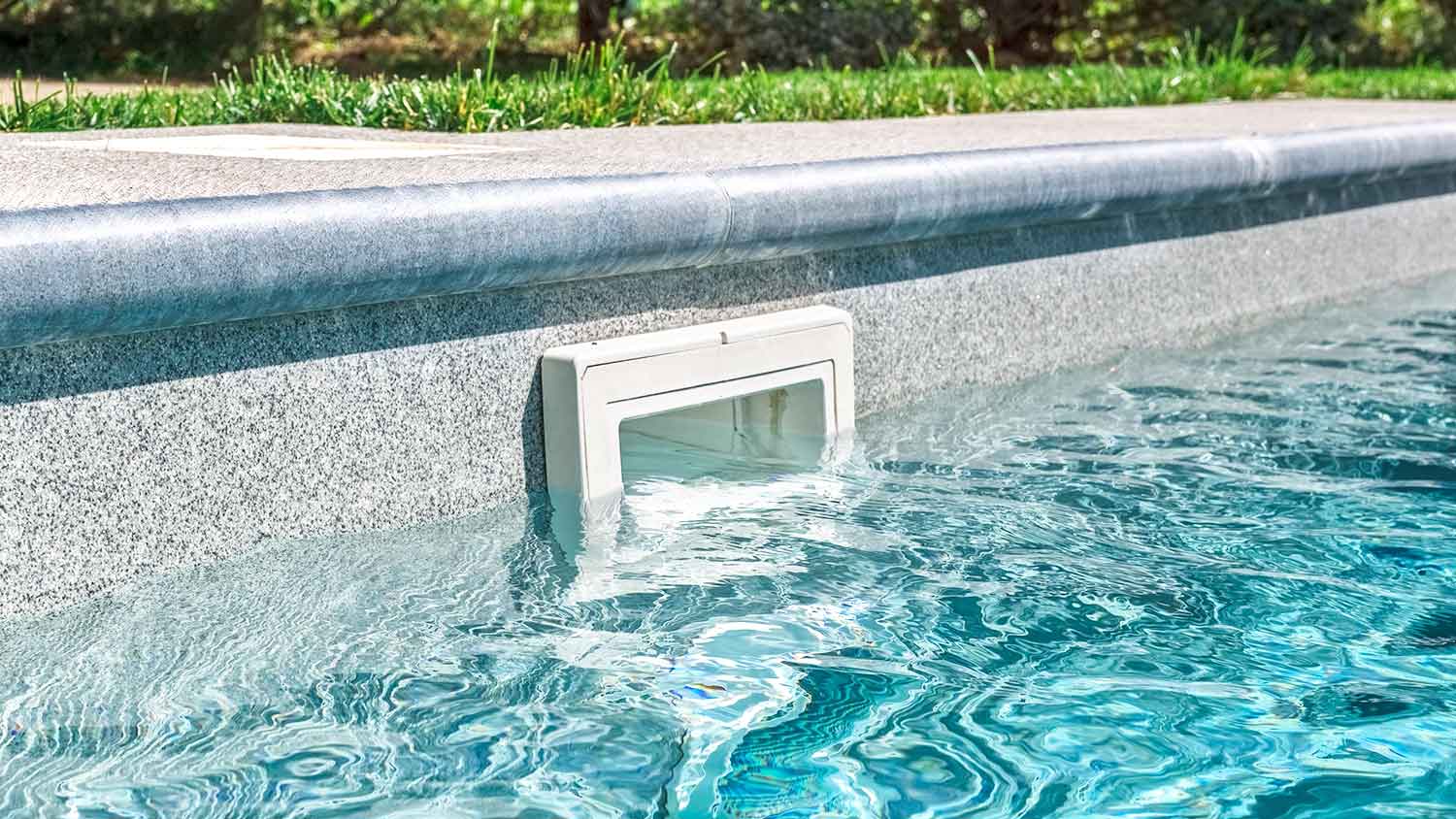
Having lower water levels in your pool is a common reason for a loud pool pump. If the water levels aren’t high enough, pool pumps suck in air along with the water, straining the pump and causing a lot of noise.
How to Fix It
Fixing this problem comes down to two steps:
First, check the water levels and ensure that the pump is at least halfway covered with water. If it’s below this level, add water to the pool until it reaches that midway point.
Manually prime your pool pump to help remove excess air.
2. Wrong Pump
A noisy pool pump from the get-go could be due to the type, size, or quality of the pump. If your pump has too much horsepower for your pool size, it could make loud sounds from overworking the pool system. Poor quality pumps can also be noisier. Choose a variable-speed pump for the quietest operation.
How to Fix It
You may need to replace your existing pump with a new one that is better suited for your pool. If you’re having trouble choosing the right pump, work with a pool expert for recommendations on quiet and reliable pumps that fit your pool’s size.
3. Blocked Pump
Pools are notorious for acquiring debris—especially in the fall. If your pool pump is loud, there could be a blockage in your pool cleaning system. Debris can make it harder for the pump to pull water from the pool and filter it, leading to a telltale ruckus.
How to Fix It
Blockages can start in the skimmer basket, impeller, or the tubes connecting the pump parts if you don’t regularly clean the pump. Here’s how to thoroughly clean clogs from a pool pump:
Turn off the filter and unplug your pump.
Inspect the parts of the pool pump for debris or sediment buildup.
Clean out the pump basket using a garden hose.
Use a wire to remove debris from the impeller.
4. Unlevel Base
Notice a buzzing or vibrating sound? The likely cause of a pool pump with these sounds is an unlevel base. If the base is uneven, the mechanisms of the pump can vibrate when operating. This can happen if the base of the pump settles or if the ground shifts unevenly.
How to Fix It
You may need to level the ground to give your pool pump a level base. A professional leveling contractor near you can relevel the ground underneath the pump and fill it with sand, crushed stone, or gravel to fix this problem. If the pool shim is broken, replace it with a more durable material, like composite or metal.
5. Worn Motor Bearings
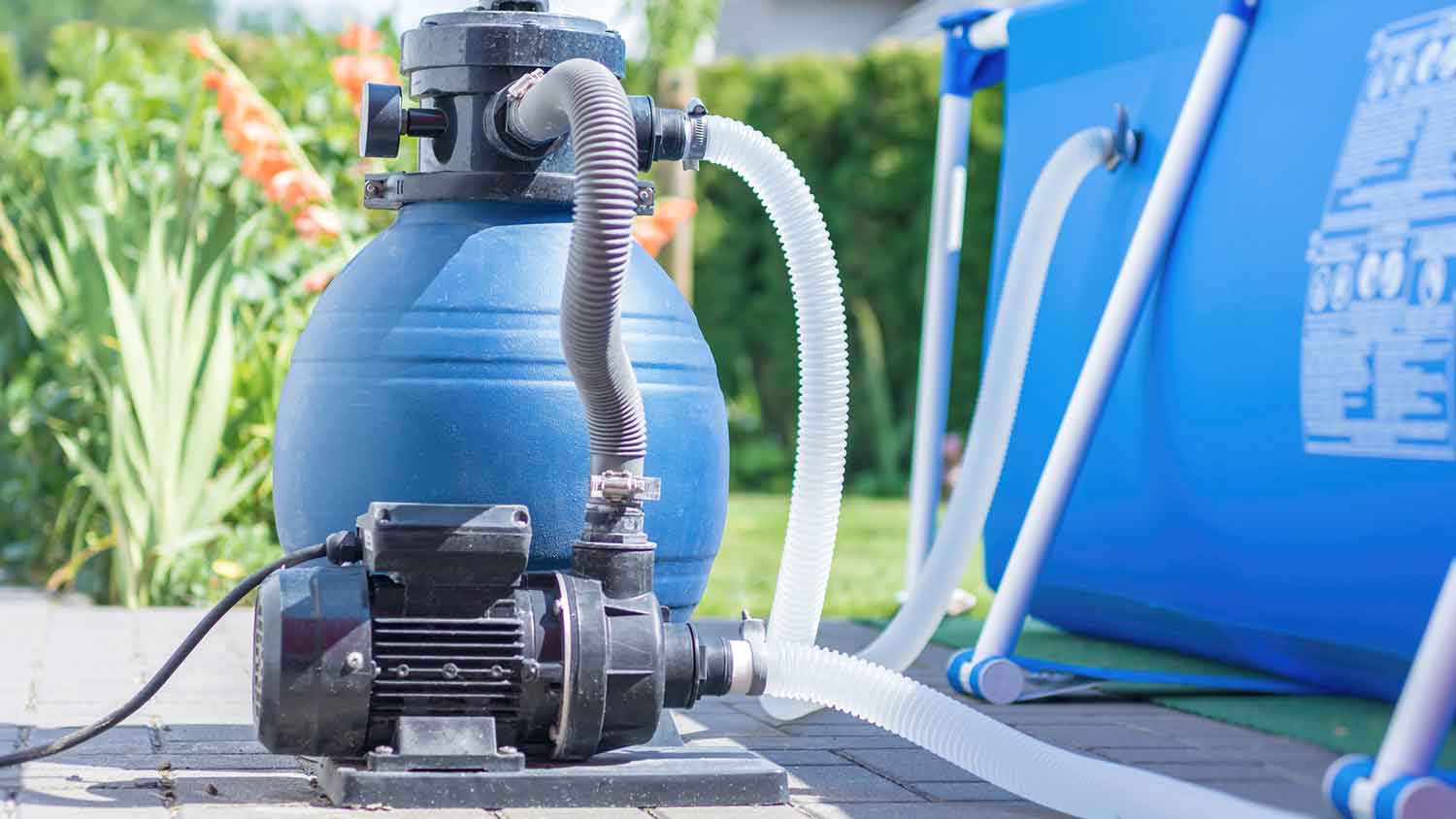
Screeching sounds coming from your pool pump could be a sign of faulty motor bearings. These bearings work to reduce the amount of friction from the motor’s spinning motion. If the motor is old, has run while dry, or has worked extra hard due to blockages, you could have a motor issue on hand.
How to Fix It
Depending on the extent of the damage and the age of your pool pump, you may need to replace the bearings or replace the entire motor. This is a task best left to a professional who knows which replacement parts to order and how to repair your pool pump.
6. Cavitation
If you leave your pool pump making noises for too long and don't address the problem, then your pump can overheat, causing the water to boil, steam, and melt parts of the pump. This can cause parts of the impeller to detach and rattle.
How to Fix It
For most pool pumps, cavitation is a serious issue that requires you to replace the impeller or the entire pump. Seek out the expertise of a knowledgeable pool technician to determine the best course of action if parts of your pump have melted.
When to Call a Pro
Many causes for a noisy pool pump can be handled at home without the help of a pro. If you have low water levels, blockages, or an unlevel base, you might not need to hire a professional. Simply filling your pool to the appropriate height, cleaning your pump, and ensuring the base is level could be all it takes to have your pool pump operating quietly. But if you suspect a bigger underlying problem that requires replacement parts, or you chose the wrong pump for your pool, we recommend working with a pool repair technician near you to troubleshoot and solve the problem.
How to Prevent a Loud Pool Pump
Whether you were hit with costly repairs or an expensive replacement pump, preventing your pool pump from getting noisy again can save you from having a repeat situation later. To prevent a loud pool pump:
Clean the filter regularly: Depending on the season, amount of use, and number of trees, empty the strainer basket once or twice a week to prevent debris buildup that could clog your pool pump and parts.
Resolve suspicious sounds fast: Don’t ignore an increasingly noisy pool pump. By tackling issues as soon as they arise, you can avoid the dreaded cavitation and irreparable damage.
Invest in a high-quality pool pump: Variable-speed pumps are the most energy-efficient and quietest types of pool pumps on the market.
Hire a maintenance technician: Hiring a swimming pool maintenance pro can help you stay on top of routine pool management without having to do all the work yourself.
Frequently Asked Questions
Yes, it's normal for pool pumps to make noises—like a humming or gentle rumbling sound. But if your pool pump is making loud noises, then this could indicate an underlying problem. Sounds to keep an ear out for include grinding, whining, screeching, and banging noises. Also, pay attention to any new or louder sounds emanating from your pump.
The average pool pump lasts between eight and 15 years. Just how long your pool pump lasts depends on the size, type, brand, quality, and maintenance you invest into your pool. Change your pool’s filter every two to three years, repair issues as they arise, invest in a variable-speed pump, and choose the correct pool pump size to get the most out of your pool pump’s lifespan.
The average cost to replace a pool pump is $1,300, but prices can range from $700 to $4,000, depending on the size and type. Variable-speed and solar pool pumps cost more than single-speed and dual-speed pumps. High-end models often carry an 80% increase in cost over standard models but can last longer due to higher quality materials.


